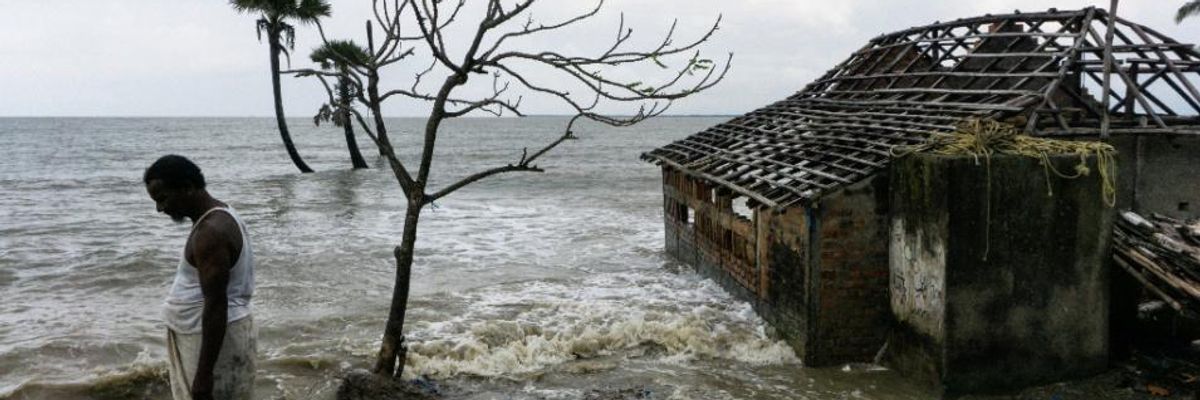Securing "a just, equitable, and ecologically healthy world for all" necessitates including human rights in climate and environmental policies, over 130 global civil society groups declared in an open letter to world leaders released Monday.
The letter was signed by Indigenous-led organizations from the Global South like the Articulacao dos Povos Indigenas do Brasil (APIB) and groups from the Global North like Friends of the Earth International. Dozens of individual experts like former United Nations special rapporteur on human rights and the environment John H. Knox are also signatories.
"We call on you to unite human rights, climate, and the environment once and for all."
Their call comes amid a number of key events: The U.N.'s biodiversity summit known as COP 15 opened Monday, while COP 26, the global climate summit, kicks off at the end of the month. And just days ago, the U.N. Human Rights Council voted to recognize the human right to a safe, clean, healthy, and sustainable environment.
Further key context, the groups wrote, is clear evidence of extractive industries running roughshod not only over the environment but over human rights as well.
"Indigenous peoples and local communities living in close proximity to the production, extraction, and processing of raw materials suffer dispossession of their lands, impoverishment, deterioration of their health, and destructive impacts on their culture, among many other abuses," the letter reads. "In turn, human rights, land, and environmental defenders who seek to prevent these violations suffer threats, criminalization, and violent attacks, and increasingly, killings."
Consequences of environmental destruction disproportionately hit "Indigenous peoples, Afro-descendants, local communities, women, children and youths, and poorly-paid workers" while profits by the damaging industries swell, the groups wrote.
"While there is evidence that the protection of human rights can lead to better environmental outcomes, calls for recognition of the holistic and indivisible nature of human rights and the environment often go unheeded in global, regional, and national environmental and climate policy forums," the groups said, adding, "This must change."
Pointing to "intersecting crises," the letter calls for "a holistic approach to environmental policy that embeds human rights and tackles systemic problems, including historically rooted social injustice, ecological destruction, state capture by corporations, corruption and impunity, as well as social and economic inequality."
Such an approach, the signatories declare, "would help to catalyze the transformative action that is urgently required."
"The time to act is now," the groups conclude. "We call on you to unite human rights, climate, and the environment once and for all. In doing so, you can help us and our future generations to thrive by living in harmony with nature."
